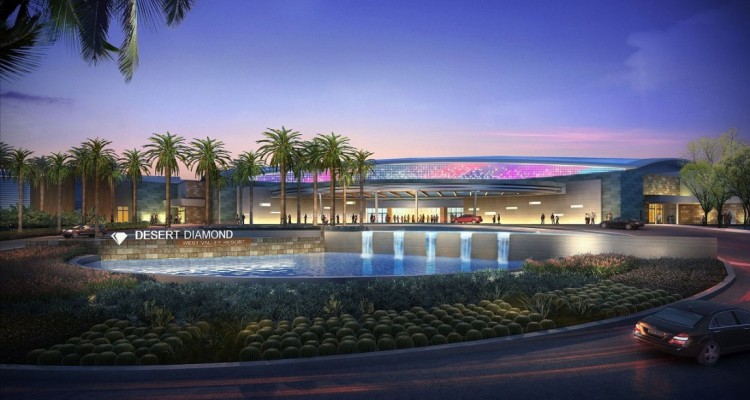The Tohono O’odham Nation wants to run full-fledged gaming operations at its Glendale casino but Arizona Gaming Director Daniel Bergin is not willing to issue the tribe a Class III gambling license that would allow the casino to operate table games such as poker and blackjack. As of now, Glendale casino is only able to offer its patrons Class II slot machines.
Bergin and his legal counsel Matthew Hoffman allege that the tribe has violated its gambling compact with the state by developing a casino in Phoenix. The tribe operates from its reservation in South Arizona and gave no indication during the gaming compact it signed in 2002 that it intended to expand its facilities outside the reservation. The compact allows the tribe to develop casinos on reservation land but did not take into consideration that the tribe could acquire more land in new jurisdictions that could then be used to develop more casinos.
Congress gave the Tohono O’odham Nation $30 million after more than 10,000 acres of reservation land located close to Gila Bend was flooded by a federal dam project. The tribe was given the opportunity to acquire replacement in Pima, Pinal or Maricopa counties. Tohono O’odham Nation took advantage of the opportunity and expanded its reservation land.
However Bergin states that the tribe deliberately left out its intention of expanding gambling facilities when it signed the compact with the state back in 2002. Bergin believes that the tribe is guilty of fraud as it purposefully omitted and misrepresented material during the signing of the 2002 compact.
Attorney Danielle Spinelli who represents the tribe has dismissed these allegations by saying the state was a sophisticated party during the negotiations which carried on for years and should have clearly specified in the compact that it did not want the Tohono O’odham Nation to expand gaming facilities outside its reservation in Southern Arizona. The tribe has filed a petition with the courts stating that Bergin is violating the compact and state law by not granting a Class III gaming license.
U.S. District Judge David Campbell is reviewing the case and is yet to make a decision on the case but has agreed to hear arguments from the tribe. In a statement, Judge Campbell said ““The compact does not prohibit the nation from building a casino in Phoenix. But neither does it expressly permit it.” Campbell believes there are a lot of unresolved questions as to what state negotiators were told by tribal officials back in 2002.
Should the case be sent to trial, it could be dragged on for a long period of time as the courts will have to hear statements and testimony from state and tribal negotiators who were involved during the 2002 compact. Arizona Governor Doug Ducey has placed an offer on the table that would give the tribe a Class III gaming license. The tribe initially rejected the proposal but later stated that it would re-consider if there were certain clarifications made to the proposal.



